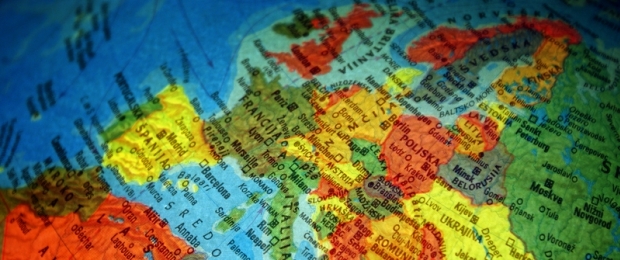
Trouble in the Med
Most of the European continent is more peaceful now than at any other time in its history. Except, that is, for the Balkans, with Kosovo on the brink of a full-scale Serb-Albanian war - and Europe's south-eastern fringe where another conflict is imminent: Turkey and Greece, two NATO allies, could end up at war.
Turkey insists that if Cyprus proceeds with plans to install Russian S-300 anti-aircraft missiles in the autumn, it will attack the installations. Greece, which has a military alliance with Cyprus, would then be bound to fight on its behalf.
The West's inability to resolve the Cyprus problem is a major root of the region's instability. The division between the Turkish-controlled north and the internationally recognised government in the Greek Cypriot south has poisoned relations between Turkey and Greece and between Turkey and the EU. Turkey responded to the start of accession talks between the EU and southern Cyprus by threatening to annex the north of the island if Cyprus became a member. Greece, for its part, has threatened to veto the accession of the East European states if Cyprus is not allowed into the EU.
The EU was wrong to snub Turkey at last December's Luxembourg summit. Not only was Turkey made the sole occupant of the third division of EU applicants, but Jean-Claude Juncker, the Luxembourg Prime Minister, declared that a country which practised torture could not sit at the EU table. The Turkish government says that further dialogue will be impossible unless the EU provides a pre-accession strategy for Turkey and includes it in all multilateral fora set up for enlargement
The EU is trying to improve relations with Ankara. It has advocated closer co-operation in fields such as telecommunications, industrial investment and human rights. David Barchard, in a forthcoming report for the Centre for European Reform, argues that the EU should enhance Turkey's status in the WEU, the EU's defence arm, and reaffirm its candidacy for membership.
But the EU must first stop Greece from using its EU membership to thwart Turkey's ambitions. At the recent EU summit in Cardiff, Athens maintained its veto on an Ecu375 million aid package promised to Turkey with the customs union. Turkey, for its part, must tackle triple digit inflation, seek a peaceful solution to the Kurdish problem, confront its poor human rights record and encourage the Turkish Cypriots to negotiate with the Greek Cypriots.
The United States is increasingly frustrated with the EU's cold- shouldering of Turkey. Turkey acts as a buffer against potential Russian expansionism, and as a counterweight to rogue states such as Iraq, Iran and Syria. The US fears that a Turkey spurned by the EU may slide towards its Muslim neighbours. But many American officials do not appreciate that the EU is a semi-supranational polity in which nations trust each other to uphold the highest standards of democracy, governance and human rights. Thus Turkey hasd to meet the highest standards if it is to join the club.
For now the prospect of an improvement in EU-Turkey relations appears bleak. Unless the EU can restore good relations with Ankara, a peaceful solution to the Cyprus problem will remain elusive. If present trends continue, southern Cyprus will join the EU, leaving the north to be annexed by Turkey. But the immediate goal of the west is not to find a long-term political settlement. It is simply to avoid war.
